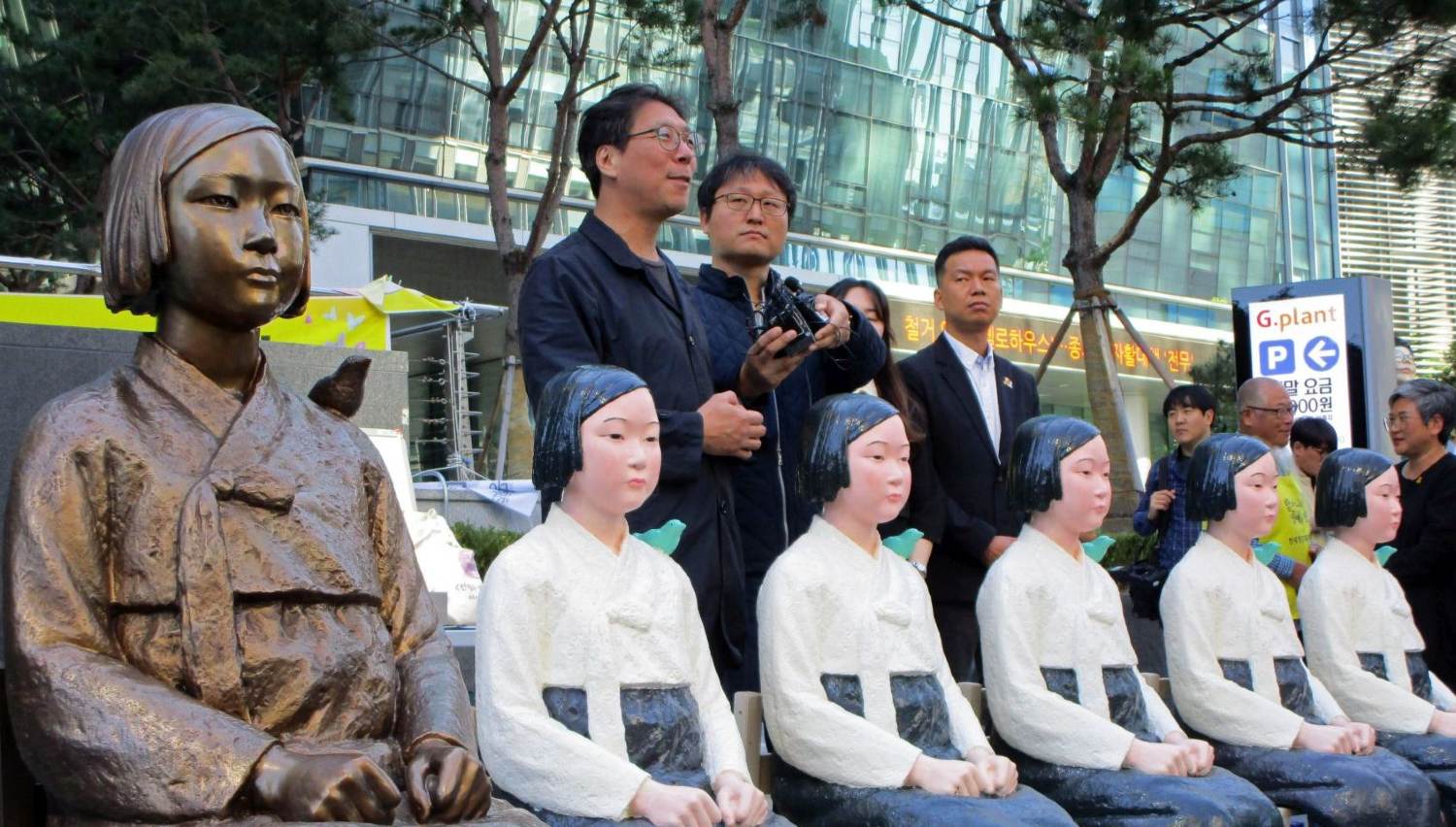By Neeraj Rajput
Soon after completing our media coverage of Buddhist monks staging a peaceful protest against the simmering war tensions in the Korean Peninsula outside the famous Gwanghwamun Palace of Seoul, my cameraman and I decided to walk toward our hotel on foot, which was a few meters away.
Barely had we moved, we came across another protest by a few women outside a multi-storied building, which we knew housed the Japanese Embassy.
My visit to South Korea was about six years ago.
The May 7 visit of Japanese Prime Minister Fumio Kishida to Seoul as part of ‘shuttle-diplomacy’ and his statement “heart hurts” over the colonization of Korea (North and South) made fresh the old wounds of ‘comfort women’ in the Korean Peninsula. There was no apology in his statement.
This was the first visit of a Japanese PM to Seoul in the past 12 years, which came soon after South Korean President Yoon Suk-yeol paid a visit to Tokyo in March this year.
These visits had raised hope of ‘closing a chapter on the historical disputes which have dominated Japan-South Korea relations’ over the past few decades.
In 2017, the world foresaw a war between South Korea and North Korea. Anticipating a war in the Korean Peninsula, my news channel assigned my cameraperson and me to go to Seoul on a journalistic visa.
After visiting the heavily guarded DMZ, the Demilitarized Zone on the North and South Korea Border, for our reportage and peaceful protest by the Buddhist monks in the heart of Seoul close to the US Embassy, we came across the protest outside the Japanese Embassy.
But why were these women staging a protest outside the Japanese Embassy in South Korea when the Korean Peninsula was on the brink of war after a series of ballistic missile tests by neighboring dictator Kim Jong Un?
We asked a passerby, who told us these women were ‘comfort women’ of South Korea protesting along with some NGOs outside the Japanese Embassy.

Since the ‘comfort women’ issue was outside our reporting assignment on tension with North Korea, we had not covered the protest. But then began the quest to know more about these comfort women.
For the past many years, every Wednesday, these elderly women staged protests outside the Japanese Embassy to pressure Tokyo to apologize for the cruel treatment meted out to them during the Colonial period.
The Korean Peninsula (when North Korea and South Korea were united) was under Japanese imperial rule from 1910-45. During this period, the Japanese army forcefully made numerous Korean women sex slaves, and they were called ‘comfort women.’
The Imperial Army established ‘official brothels’ or ‘comfort stations’ for Japanese soldiers where these women were raped. Women were tortured, too, if they didn’t obey the orders.
Many such women committed suicide or died due to the cruel behavior of the Japanese soldiers. Such comfort stations were established wherever the Imperial Japanese army went for war, as far as China and Myanmar besides South Korea.
Though the exact numbers of such comfort women remain elusive, some recent research calculates it to be around 50 to 100,000. Although most were from the Korean Peninsula, it included those from China, the Philippines, and even Dutch East Indies (present Indonesia).
The South Korean government paid compensation to comfort women to settle the historical dispute, but people are demanding an unconditional apology from Japan for its colonial wrongs.
The recent Japanese PM’s visit to Seoul was part of US efforts to bring all allies to one table against a common enemy, the rogue state North Korea and its dictator Kim Jong Un.
“Cooperation and coordination between South Korea and Japan are essential not only for the common interests of the two countries but also for world peace and prosperity,” said the South Korean President on Sunday during his meeting with the Japanese PM in Seoul. The US also welcomed the pledge by both countries to confront threats from North Korea and competition from China.
“Its true main focus of this bilateral summit between Yeol and Kishida was security cooperation. While South Korea sees North Korea as the main threat, for Japan, it is North Korea and China”, says Rahul Raj, Assistant Professor at the Korean Studies Center of Jawaharlal Nehru University (JNU) in Delhi.
“South Korea was expecting an apology from Kishida for wrongs done by Japan during colonial rule though the Normalization Treaty was signed by both the countries in 1965,” Rahul Raj told EurAsian Times, who received his higher studies from a reputed university in Seoul.
The historical dispute between Korea and Japan included forced labor, besides the issue of comfort women, Rahul Raj adds, who is also among the few Indians who have visited North Korea.
In recent years the relations between the two Far East countries have also deteriorated due to a Supreme Court order of South Korea to compensate forced laborers by Japanese companies operating from Seoul.
After this order, Japan stopped supplying semiconductors to South Korea, which was a huge necessity for the Korean industry. “In that way, this trip to Seoul was important from a business point of view, too,” adds Rahul Raj.
[Note: Author had traveled thrice to South Korea for coverage of tensions in the Korean Peninsula, including once for the historic Korean Summit in 2018 when North Korean dictator Kim Jong Un met the then President of South Korea Moon Jae-in at DMZ to mitigate tensions].
- Neeraj Rajput is a Senior War Correspondent from India who has covered the Russia-Ukraine war.
- Please email us at etdesk (at) eurasiantimes.com
- The author tweets at @neeraj_rajput